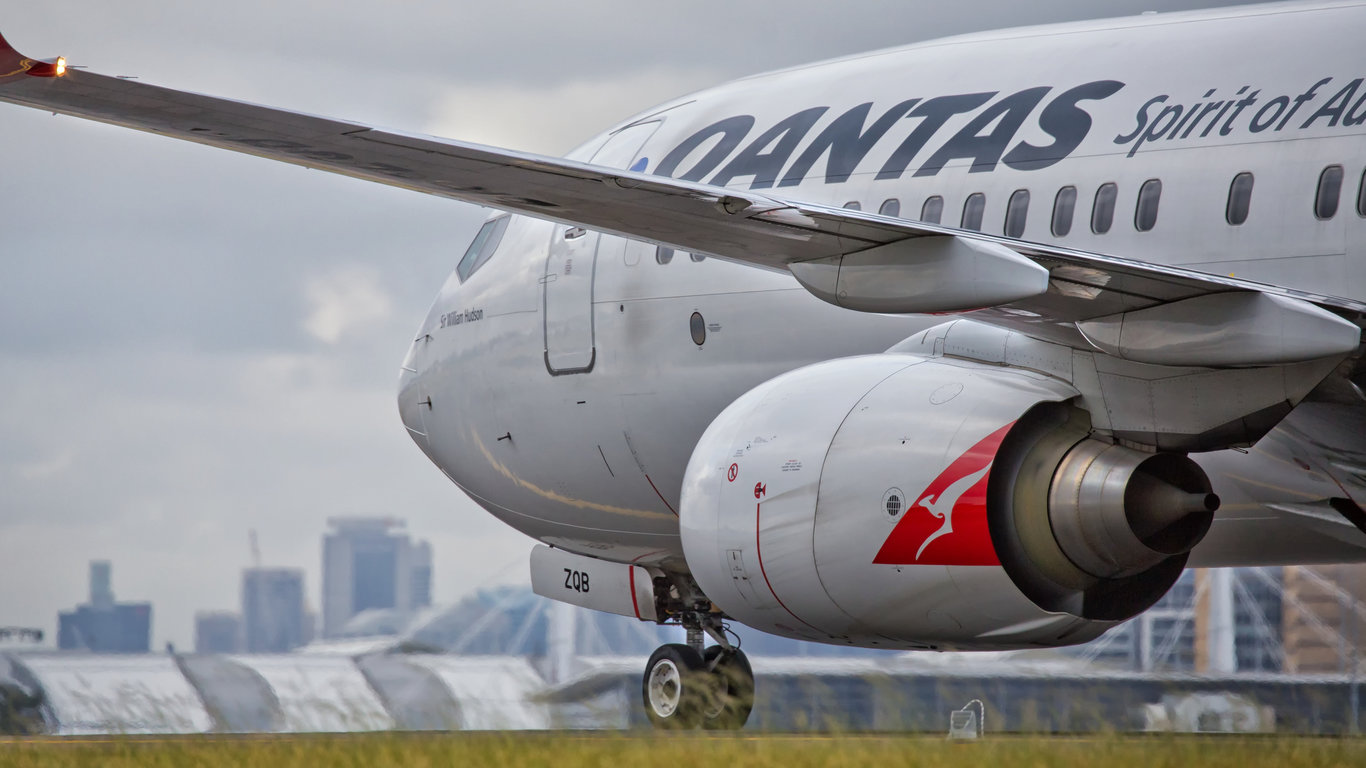
Although not surprising, the situation got a little worse today for Boeing Co. (NYSE: BA) amid the COVID-19 pandemic.
Australian airline Qantas International said that it would not take delivery of any new planes from Boeing or its European rival Airbus in the near future.
Boeing had been scheduled to deliver three of its 787-9 airliners by the end of 2020, which would have brought Qantas’ Dreamliner fleet to 14. Airbus had been expected to begin delivery in August of 18 Airbus A321neos. The completion of the Airbus order had been set for 2022.
No revised timeline for delivery of the commercial jets has been drawn up, the airline told Reuters.
Boeing and Airbus have been reducing costs by cutting production rates as airlines around the world have grounded large portions of their fleets and delayed delivery of new aircraft.
These challenges come on the heels of the grounding of Boeing’s 737 MAX after two crashes killed 346 people. Hundreds of the airliners are parked as the company awaits clearance from the Federal Aviation Administration for the aircraft to return to flight.
737 MAX Production May Resume Soon
In an interview Friday on Fox Business, President and Chief Executive Dave Calhoun said he expected the assembly lines for the 737 MAX to begin moving before the end of this month. He said that the FAA certification process had taken longer than he anticipated but that he had confidence in the aircraft.
“I have always believed in the MAX,” Calhoun said. “I still believe in it. The certification process that we have been going through with the FAA – it has been constructive, it has been thorough. The documentation effort has been significant and probably has taken us longer than we imagined it would have.”
Earlier this month, Gerry Laderman, chief financial officer of United Airlines Inc. (NASDAQ: UAL), said the company was reconsidering the timing of its order for 177 Boeing 737 MAX planes to be delivered through 2022.
“We are discussing the timing of these deliveries with Boeing,” Laderman said on the company’s May 1 quarterly earnings call. “However, one thing is certain – I do not anticipate taking any of those aircraft, unless and until we need them.”
At the end of April, Boeing said it would cut 16,000 jobs. In making the announcement, Calhoun said that the pandemic was “delivering a body blow to our business” and that “demand for commercial airline travel has fallen off a cliff.”
Flights Virtually Empty
Commercial air travel has come almost to a halt since the coronavirus pandemic took hold. Airlines are averaging 17 passengers per U.S. domestic flight, compared with 85 to 100 in the first two months of 2020, the trade group Airlines for America says. The number for international flights is 29, compared with about 150 earlier this year.
Carriers have responded to the disappearance of airline customers by making drastic cutbacks. Delta Air Lines, Inc. (NYSE: DAL) announced on Friday that it will temporarily halt commercial service to 10 U.S. airports beginning Wednesday. Because of the pandemic, Delta has announced it is reducing the number of its domestic flights by 80%.
On Friday, Calhoun said in a Fox Business interview that he talks with one or two leaders in the airline industry every week. “I think most of them are trying to dial in a return of about 30% to 50% by the end of this year,” Calhoun said. “There’s a wide variation in that. A lot is going to depend on how the public responds to, you know, the safety of the airline cabin.”
He added, “I think they’re reasonably confident they can begin to approach sort of half the schedule they had before.”
‘We Will Slowly Crawl Back’
Boeing is projecting that it will take three years for the airline and aerospace industries to recover from the pandemic. “We will slowly crawl back to the traffic levels that we had in 2019,” Calhoun said. “And then it will take another two years to get back on the growth curve that the industry has enjoyed for almost two straight decades.”
The company has suspended dividends and is issuing $25 billion in bonds to weather the pandemic instead of taking a bailout from the U.S. government. “We’ll prioritize the payback of our debt instruments over anything with respect to return to shareholders, until we get back to the same kind of balance sheet we add before the virus, and before the MAX,” Calhoun said Friday.
In early stock market trading Monday, Boeing shares were down about 4%, near $128 per share. The stock’s 52-week range is $89.00 to $391.00, and the 12-month consensus price target is $159.00.
It’s Your Money, Your Future—Own It (sponsor)
Retirement can be daunting, but it doesn’t need to be.
Imagine having an expert in your corner to help you with your financial goals. Someone to help you determine if you’re ahead, behind, or right on track. With SmartAsset, that’s not just a dream—it’s reality. This free tool connects you with pre-screened financial advisors who work in your best interests. It’s quick, it’s easy, so take the leap today and start planning smarter!
Don’t waste another minute; get started right here and help your retirement dreams become a retirement reality.
Thank you for reading! Have some feedback for us?
Contact the 24/7 Wall St. editorial team.
 24/7 Wall St.
24/7 Wall St.